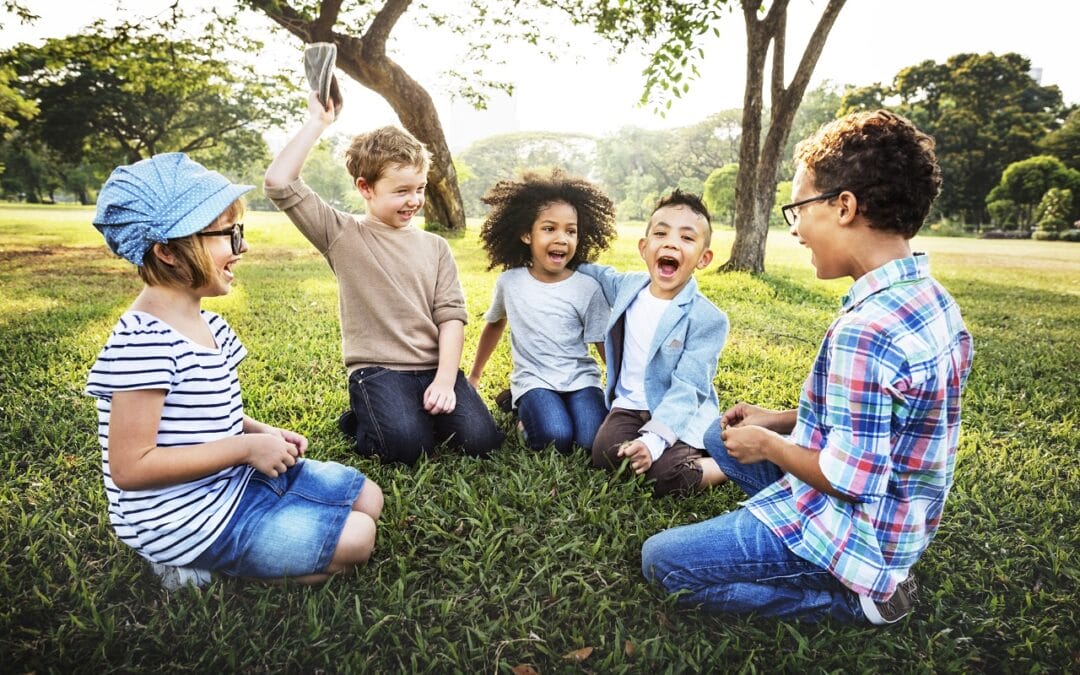Growing up isn’t always a walk in the park. As parents, teachers, or childcare providers, we all know how crucial it is to help our little ones navigate the twists and turns of social interaction. It’s a big world out there, and learning to connect and engage with others forms a significant part of their journey. This is where the importance of promoting social skills development in children comes in.
Now, you might ask, why should we focus on social skills? Well, strong social skills can do wonders for a child’s confidence and ability to form meaningful relationships. They instill a sense of empathy, allow for effective communication, and lay the foundation for successful teamwork.
But how exactly do you go about promoting these essential life skills? Well, we’re here to provide you with a variety of strategies to cultivate a child’s social competence. We’ll delve into practical activities, provide tips for modeling positive behavior, and even explore how to turn everyday situations into learning opportunities.
Key Social Skills for Childhood Development
Building a strong foundation in social skills plays a crucial role in fostering confidence, empathy, and personal growth in children. These essential skills encompass a diverse range of competencies that enable successful interactions and relationships, including:
- Communication Skills: The ability to convey thoughts, emotions, and ideas effectively helps children connect with others, express their needs, and understand the perspectives of others.
- Emotional Intelligence: Developing a keen awareness of emotions in both oneself and others enables children to navigate difficult situations, demonstrate empathy, and regulate their emotional responses.
- Conflict Resolution Skills: Learning how to resolve conflicts constructively, mediate disagreements, and find common ground can help children manage their relationships with peers more effectively.
- Cooperation and Teamwork: Cultivating collaborative skills and learning to function as part of a group bolsters children’s ability to succeed in school, friendships, and future careers.
Our Strategies and Approaches for Promoting Social Skills
At our multi-disciplinary studio, we implement various evidence-based approaches designed to nurture social skills development in children. These methods focus on creating engaging, developmentally appropriate opportunities designed to foster critical competencies and promote personal growth:
- Group Therapy and Structured Social Skills Groups: These programs provide children with a structured environment in which they can practice new skills, interact with peers, and develop confidence in their social abilities.
Our group sessions emphasize interactive games, role-playing scenarios, and cooperative problem-solving tasks to provide children with opportunities to apply their social skills and receive valuable feedback from peers and facilitators.
- One-on-One Social Skills Training: We also offer personalized sessions for children who may benefit from individualized support in developing specific social skills. These sessions often involve tailored activities and coaching focused on the child’s unique goals and needs, ensuring a targeted and effective approach to skill-building.
- Parent and Caregiver Training: We believe in empowering parents and caregivers with the tools and knowledge to support their child’s social skills development. Our studio offers workshops, resources, and guidance on promoting social competence, helping families to reinforce and build upon the skills children learn in our programs.
- Collaboration with Community Organizations: Our studio actively collaborates with community organizations to support social skill development across various contexts and environments. This coordinated approach helps create supportive systems and consistent expectations, promoting generalization of skills and lifelong success.
The Role of Play in Fostering Social Skills
Play serves as a natural context for children to explore, practice, and refine their social skills. Through engaging in play, children learn to communicate, collaborate, problem-solve, and navigate social interactions:
- Imaginative Play: Imaginative or pretend play offers rich opportunities for children to take on different roles, communicate with one another, and experiment with social dynamics.
- Guided Play: Under adult guidance, children can engage in games and activities designed to cultivate specific social skills and competencies, such as cooperation, empathy, or perspective-taking.
- Free Play: Free, unstructured play allows children the chance to interact with their peers, practice negotiation, and develop conflict resolution skills within a natural setting.
The process of social skills development is a lifelong journey, and our studio is committed to tailoring our strategies and approaches to each child’s unique needs, strengths, and goals. Our multi-disciplinary team collaborates closely with families, schools, and community organizations to create a supportive, responsive, and holistic environment in which children can thrive.
The Role of Play in Enhancing Children’s Social Skills
Social skills development is vital for children’s overall growth and well-being, laying the foundation for successful relationships, emotional intelligence, and personal fulfillment. Our child therapists are deeply devoted to nurturing and supporting this critical aspect of childhood development, implementing a range of evidence-based techniques and approaches aimed at fostering confidence, connection, and success.
From group therapy and individualized sessions to parent training and community partnerships, Watch Me Shine strives to provide comprehensive and engaging opportunities for children to cultivate their social skills and unlock their innate potential. Learn more about the social skills programs we offer and experience the transformative impact of strong social skills development for your child!

